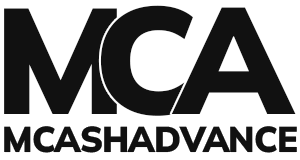
If you operate a healthcare business and require funding to expand your general practice, enhance specialty clinics, or improve mental health services, MCashAdvance healthcare business advances are the swift solution you’ve been searching for.
We offer healthcare business advances ranging from $5,000 to $900,000 to help grow your healthcare enterprise. We fund all types of healthcare businesses, including general practices, specialty clinics, and mental health services.
Securing financing from banks for healthcare businesses can be a lengthy and challenging process, often taking weeks or even months to obtain, with strict approval requirements, extensive paperwork, and a preference for businesses with perfect credit.
An advance from MCashAdvance for healthcare businesses offers simpler approval, no paperwork or collateral, the possibility of receiving funds within 24 hours or up to 3 days, and accepts poor credit scores with no hard credit check that won’t impact your credit score upon application.
Get a Healthcare Business Loan Alternative Now
| MCA Feature | Offer Details |
|---|---|
| MCA Amounts: | $5,000 – $900,000 |
| Factor Rate: | 1.1 – 1.5 |
| Holdback | 10 – 25% |
| Repay In: | 3 – 18 months |
| Funding Time: | 1 – 3 days |
Applying is easy, free, and won’t impact your credit score.
Get the healthcare business financing you need today.
What is a Healthcare Business Advance?
A healthcare business advance is a type of merchant cash advance (MCA) created for healthcare businesses, including general practices, specialty clinics, and mental health services.
Your healthcare business sells a portion of its revenue to MCashAdvance in exchange for an upfront lump sum of funds called a cash advance.
In exchange, we will deduct a small percentage of your daily sales revenue until the advance is fully repaid.
Emergency Funding for Healthcare Businesses
In the healthcare sector, financial challenges can arise unexpectedly, whether due to operational costs, equipment needs, or other unforeseen expenses. A healthcare business cash advance offers a swift and flexible financial solution, typically available within 24 hours to 3 days, and can be used for any healthcare-related need.
Healthcare Financing for Any Purpose
Here are 13 common ways a cash advance can be utilized in your Healthcare Business:
- Upgrade Medical Equipment: Invest in the latest medical technology and equipment to enhance patient care.
- Expand Healthcare Services: Broaden the range of services offered to patients, such as adding new specialties or treatments.
- Renovate Healthcare Facilities: Update or expand your clinic, hospital, or healthcare facility to improve patient comfort and care.
- Implement Electronic Health Records (EHR): Transition to or upgrade EHR systems for more efficient patient data management.
- Enhance Patient Experience: Improve waiting areas, add patient amenities, and enhance overall patient comfort in your facility.
- Invest in Staff Training: Provide advanced training for your medical and administrative staff to improve patient care and operational efficiency.
- Marketing and Community Outreach: Fund marketing campaigns or community health programs to increase patient engagement and clinic visibility.
- Purchase Medical Supplies in Bulk: Use the advance to stock up on essential medical supplies and pharmaceuticals.
- Implement Telemedicine Services: Invest in telehealth technology to offer remote consultations and expand patient access.
- Improve Accessibility: Make your facility more accessible to patients with disabilities, adhering to ADA guidelines.
- Hire Additional Staff: Expand your team to meet patient demand and reduce wait times.
- Develop Wellness Programs: Create or expand wellness and preventive care programs for patients.
- Emergency Repairs and Maintenance: Address urgent repairs or maintenance needs in your medical practice.
Medical Practice Advance Example
Suppose you’re operating a healthcare business, specifically a dental practice, and you need a $25,000 medical practice merchant cash advance to purchase a new dental treatment chair to enhance your services. You’ve been approved for this amount and received a funding offer with a factor rate of 1.2 and a daily credit card holdback percentage of 15%. Let’s take a closer look at the details of this funding:
| Details | Example |
|---|---|
| Advance Amount | $25,000 |
| Factor Rate | 1.2 |
| Avg Monthly Credit Card Sales | $16,500 |
| Holdback Percentage | 15% of Daily Credit Card Sales |
| Daily Credit Card Sales | $550 per day (approx.) |
| Daily Payment Amount | $82.50 per day (approx.) |
| Repayment Term (in days) | Approximately 363 days |
| Repayment Term (in months) | Approximately 12 months |
| Total Repaid (including fees) | $30,000 |
Healthcare Business Funding Eligibility
To be eligible for funding from MCashAdvance you must meet these 5 criteria:
- Your healthcare business must have been operational for at least 6 months
- Your medical practice or healthcare facility should be generating a minimum of $100,000 per year in revenue
- As the healthcare business owner, your personal FICO score needs to be 550 or higher
- Your healthcare center must utilize a business checking account
- You, as the healthcare business proprietor, must be over 18 years of age and a U.S. citizen
How to Get a Healthcare Advance from MCashAdvance
To get an advance for your healthcare business from MCashAdvance, follow these 5 steps:
Step 1: Begin Online Application: Click Apply for an MCA to begin.
Step 2: Fill in Your Details: Provide information about your healthcare business and personal details as the owner of the business.
Step 3: Submit Bank Statements: Upload the last three months’ bank statements of your healthcare business.
Step 4: Await Review Process: Our underwriters will review your cash advance application to decide on funding.
Step 5: Receive Offer and Funding: Once you get a funding offer, review it. If it suits your business needs, accept it, sign the MCA agreement and the funds will be deposited into your business account
Get a Healthcare Business Advance Now
or learn more about small business cash advances
Healthcare Business Funding FAQs
Healthcare businesses can potentially qualify for SBA loans, and they are most likely to be eligible for options like the SBA 7(a) Loan, SBA 504 Loan, and SBA Express Loan, which can provide financial support tailored to their specific industry needs.
Healthcare businesses, particularly those offering services to other healthcare facilities or insurance companies, and issuing invoices for those services, may be eligible for invoice financing.
Banks typically require healthcare businesses to have at least two years in operation, a FICO credit score of 680 or higher, three years of cash flow records, and a well-structured business plan outlining fund usage. Meeting these criteria increases the likelihood of banks approving a loan for your healthcare business. If you can’t meet these standards, alternative lenders like MCashAdvance may offer more accessible eligibility criteria for obtaining financial support for your healthcare practice.
Healthcare businesses can invest in equipment such as medical imaging devices and use the medical imaging devices as collateral to secure financing. At MCashAdvance, you can obtain medical imaging devices using our advances without having to use the equipment as collateral.
Certainly, healthcare businesses can obtain business lines of credit from most lenders if they meet certain qualifications related to the healthcare industry. These typically include maintaining a FICO credit score of 660 or higher, having at least one year of experience in the healthcare field, and consistently generating monthly healthcare revenue exceeding $5,000.
Medical practices looking for a good Merchant Cash Advance company try to work with a company that knows about the healthcare industry. This makes everything easier because they understand the financials of your industry and are more likely to fund your healthcare advance.
Healthcare cash advances offer quick funding based on future credit card sales, with flexible repayments as a percentage of daily transactions. They require less stringent credit checks and no collateral, processing faster than traditional loans but come with higher overall costs than traditional small business loans.
At MCashAdvance, we provide healthcare advances to practices that have been in operation for at least six months. We do not offer funding for healthcare businesses in the pre-startup phase. However, we do offer advances to existing practices that are looking to expand by purchasing new practices or creating new ones.
Yes, there are alternatives to traditional medical practice loans. Non-bank options include business lines of credit, equipment financing, online loans, and MCAs provided by online lenders. At MCashAdvance, we offer a customized MCA for medical practices called a Healthcare Business Advance.

